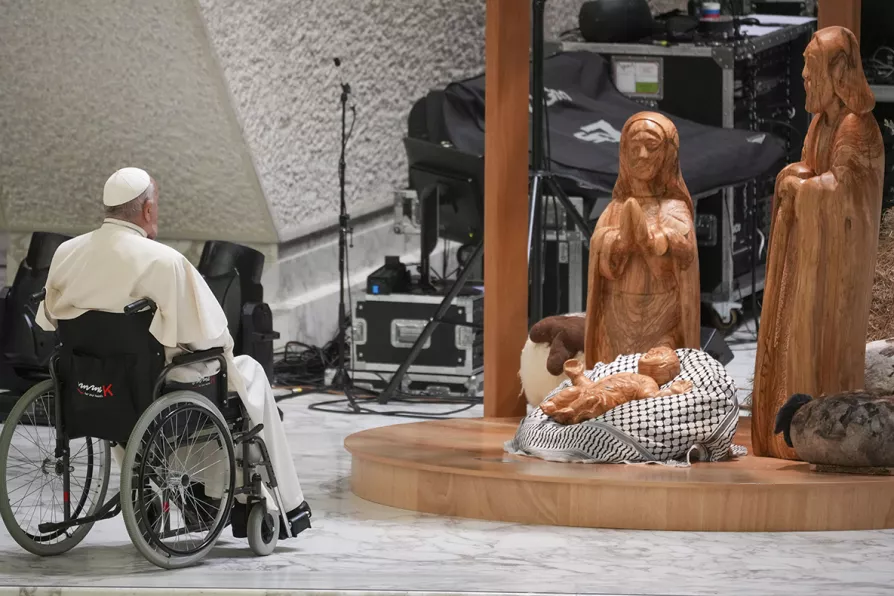RAMZY BAROUD looks at how entire West Bank communities have been shattered, their social and physical fabric deliberately dismantled by Israel to enable its formal annexation

 Pope Francis prays in front of a Nativity Scene crafted in the West Bank city of Bethlehem, as he arrives for a meeting with the donors of the fir tree set up in St. Peter's Square as a Christmas tree and those who have crafted the life-size nativity scene at the tree's feet, in the Paul VI hall at the Vatican, December 7, 2024
Pope Francis prays in front of a Nativity Scene crafted in the West Bank city of Bethlehem, as he arrives for a meeting with the donors of the fir tree set up in St. Peter's Square as a Christmas tree and those who have crafted the life-size nativity scene at the tree's feet, in the Paul VI hall at the Vatican, December 7, 2024
BETHLEHEM, a city rich in history and culture, is currently facing a serious crisis. The ongoing Israeli aggression on Gaza and Lebanon has severely disrupted the city’s stability.
This situation has had a major impact on Bethlehem’s economy, especially its crucial tourism sector, and has harmed local industries and the community’s social fabric.
Tourism has taken a significant hit, with the number of visitors to Bethlehem in the first nine months plummeting to just 3 per cent of last year’s figures and overnight stays declining to only 2 per cent.
The ongoing Israeli aggression has made both international and local travellers hesitant to visit, leaving the tourism industry in dire straits.
The Bethlehem governorate is losing about $1.5 million every day because of this downturn, translating into real struggles for families and businesses that depend on the steady flow of visitors.
Challenges for local industries
The local handicraft industry, which produces traditional items like olive wood crafts, silver jewellery, ceramics, and embroidered textiles, is also suffering. As tourism declines, so does the demand for these artisanal products, putting many artisans’ livelihoods at risk.

CHRIS HOOFE calls for support for GMB’s Potters’ Pledge campaign, aimed at making sure the historic pottery industry based in Stoke-on-Trent is supported over cheap, low-quality imports and counterfeits

The US president’s universal tariffs mirror the disastrous Smoot-Hawley Act that triggered retaliatory measures, collapsed international trade, fuelled political extremism — and led to world war, warns Dr DYLAN MURPHY












